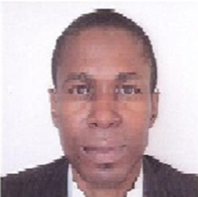Day 2 :
Keynote Forum
Chinedum Onyemechi
Federal University of Technology Owerri, Nigeria
Keynote: Ocean research institutional model for the emerging sector: West Africa’s subsea support sector

Biography:
Chinedum Onyemechi is an accomplished academic with over eighty published works in Maritime Management Technology most of which has been presented in academic and industry-based conferences in countries including but not limited to United Kingdom, Egypt, South Africa, United States of America, Canada, India, Spain, Russia, and Nigeria. He was promoted Lecturer II in 2006 and Lecturer I in 2009. He became a Senior Lecturer in the year 2012 and has been promoted
Reader in the professorial cadre ‘Maritime Management Technology’ in the year 2015.
Abstract:
The work analyzed current level of development in deep-sea ocean technology research in juxtaposition with present level of ocean technology research in West Africa and came up with solutions on research development pathway for the entire region. Given West Africa’s position as current leader in deep-sea oil production in Africa the need for the gearing of her local content in this direction was stressed. Theoretical models discussed in the course of the research includes direct ocean engineering models such as linear wave theory, second-order Stokes wave theory, the stream function theory, and spectrum models. These models were further assessed in terms of current applications in the design of West Africa’s floating, production and storage vessels. Further analyzed were institutions in West Africa with good research laboratories for ocean technology research using such models as the ecosystems model and the diamond cluster model. Solutions were derived at the end of the study and recommendations made for West Africa’s offshore sub sector.
Keynote Forum
James H Cowan
Louisiana State University, USA
Keynote: Fisheries and their impacts: Imagined and real

Biography:
James H Cowan, Jr is a Professor in the Department of Oceanography and Coastal Sciences and the Coastal Fisheries Institute at the Louisiana State University, both of which are part of LSU's School of the Coast and Environment. He received BSc (Biology) and MSc (Biological Oceanography) degrees from Old Dominion University, and MSc (Experimental Statistics) and PhD (Marine Sciences) degrees from the Louisiana State University. Among many other professional activities, he has served on four National Research Council study committees and technical review panels concerning fisheries issues, has twice served on the Ocean Sciences Division, Biological Oceanography Review Panel for the National Science Foundation, and has served as a US delegate both to the International Council for the Exploration of the Sea (ICES) and the Pacific Marine Sciences Organization (PICES). He was Chairman of the Reef Fish Stock Assessment Panel for 13 years and
currently is a member of the Standing Scientific and Statistical Committee for the Gulf of Mexico Fishery Management Council. He has served as President of the Early Life History Section, and on the Outstanding Chapter Award and Distinguished Service Award committees for the American Fisheries Society.
Abstract:
The impacts of harvest on fisheries have been hotly debated over the past 100 years. Here, I discuss these impacts, both imagined and real. The first part of my talk will focus on Pauly’s Mean Trophic Level Index, which is meant to provide a means by which to identify whether fisheries ecosystems have declined in complexity, owing mostly to the overharvest of large pelagic predators. Pauly suggested in a 1998 paper in Science that many of the world's fisheries ecosystems are threatened by these removals, thus reducing long-term stability and productivity. I will provide an example from the Gulf of Mexico to both illustrate and question the validity of this Index. In the second part of my talk, I will discuss the magnitude and effects of bottom trawling, a fishing technique that has been used since the early 1800’s and continues today to be used worldwide. I will speak about the effects of trawls on fish and crustacean populations, and on the seafloor. Often, trawling is focused on a single species, but trawls are notoriously nommed selective, and those fishes or crustaceans that aren’t the target species are returned to the sea dead. In the early days of trawling for shrimp in the Gulf of Mexico, the ratio of pounds of bycatch to pounds of shrimp was ~11:1. In a new paper that has been submitted for publication, we estimated the area of the northern Gulf of Mexico shelf and slope to a depth of 1000 m are approximately 4.6×105 km2. The total trawl swept-area for the years 2007-2009 was 2.8×105 km2 yr-1 making impacts of trawling easy to visualize. When all of the areas we studied are combined, landings of fish, crustaceans, and mollusks are 18.9 to 19.8 million t yr-1.
